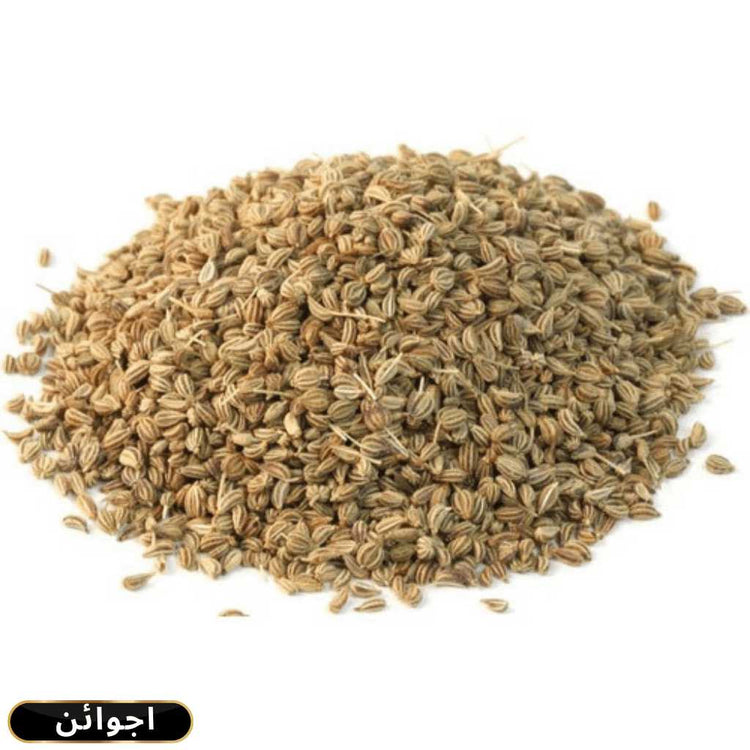
Carom Seeds Prices | Premium Quality 100g Pack of Carom Seeds|
Availability: In Stock
SKU:
AR-000071



Free Shipping on orders above 5000 PKR!
My Experience excellent Khan Dry Fruits
Best Quality Dry fruits Khan Dry High Quality Dry fruits in Lahore i recemand...
Amazing experience Amazing Quality Amazing dry fruits Loved it.




Carom seeds, also known as ajwain, are a popular ingredient in Pakistani cuisine and are used in a variety of dishes for their distinct flavor and aroma. The price of carom seeds in Pakistan can vary depending on several factors, such as the location and time of the year.
In general, carom seeds are relatively affordable in Pakistan, with prices ranging from around Rs. 600 to Rs. 800 per kilogram in local markets. This is equivalent to approximately USD 4 to USD 5.5, depending on the current exchange rate.
The price of carom seeds can fluctuate depending on the season and the local supply and demand. During the peak season, which usually falls between October and February, the price of carom seeds may be lower due to higher availability. In contrast, during the off-season, the price of carom seeds may be higher due to lower supply.
It's important to note that the quality and grade of carom seeds can also affect their price. Higher quality carom seeds may be more expensive than lower quality ones, and the price may also vary depending on the region and the specific vendor.
Overall, carom seeds remain a relatively affordable ingredient in Pakistan, and their price can vary depending on several factors. Despite the fluctuations in price, carom seeds remain a popular and important ingredient in Pakistani cuisine, adding unique flavor and aroma to a variety of dishes.
Carom seeds, also known as ajwain or bishop's weed, have been used for centuries in traditional medicine and culinary applications. With their distinct aroma and flavor, as well as a range of potential health benefits, carom seeds have become an increasingly popular ingredient in many cuisines around the world.
In this comprehensive guide, we will explore everything you need to know about carom seeds, including their nutritional value, potential health benefits, and various culinary uses. We will also look at how carom seeds are grown, harvested, and processed, as well as their cultural significance and history.
In this section, we will introduce carom seeds and provide some basic information about their appearance, flavor, and aroma. We will also discuss the different names carom seeds go by in various cultures, and provide an overview of their cultural significance.
In this section, we will look at the nutritional composition of carom seeds, including their essential oils, vitamins, and minerals. We will discuss the potential health benefits of these nutrients, and examine how carom seeds can be incorporated into a healthy diet.
In this section, we will explore the various health benefits that carom seeds may offer, based on both traditional medicine and scientific research. We will discuss their potential as a digestive aid, their anti-inflammatory properties, and their potential use in treating respiratory conditions.
SeedsIn this section, we will delve into the various culinary uses of carom seeds, including their use in Indian, Middle Eastern, and Mediterranean cuisines. We will look at their role in different dishes, such as curries, soups, and stews, as well as their use in baking and as a seasoning for vegetables.
Growing and Processing Carom Seeds
In this section, we will look at how carom seeds are grown, harvested, and processed, including the role of farmers and producers in the industry. We will examine the various methods used to extract the essential oils from carom seeds, and look at how these oils are used in different industries.
In this section, we will explore the cultural significance of carom seeds in different cultures, including their use in traditional medicine and religious rituals. We will also look at the history of carom seeds, including their origins in the Mediterranean region and their spread to other parts of the world.
In this final section, we will summarize the main points of the guide and provide some suggestions for incorporating carom seeds into your diet and daily life. We will also discuss the future of the carom seed industry and the potential for further research on its benefits and uses.
Overall, this comprehensive guide will provide readers with a deep understanding of carom seeds and their many uses and benefits. From their nutritional composition to their culinary and cultural significance, carom seeds are a fascinating and versatile ingredient with a long and storied history.
Rs. 0.00
Select Weight / Size:
Please confirm your details to place your order via WhatsApp.

Khan Dry Fruits are Fresh Tasty & Best Quality to deliver all over Pakistan. Our Dry Fruits are highly selected by QC staff.
2% discount and receive coupon for first shopping

